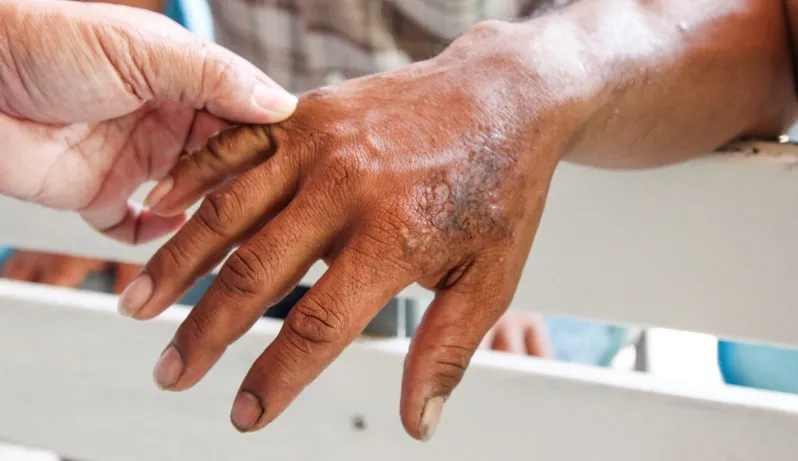[Survivor Series] I cut off from people when I got leprosy because of shame
Food seller Gobinath came to Delhi for his leprosy treatment after he had to face shame for his condition back home in Andhra Pradesh. In this week’s Survivor Series, read his story.
My name is Gobinath, and I am 74-years-old, hailing from Andhra Pradesh. I got leprosy when I was in school and eventually stopped attending classes.
There was a lot of shame associated with leprosy when I first got infected with it. So, I cut off from the people around me because I didn't want to cause anyone shame.
My parents wanted me to go for treatment and I visited many alternative doctors, but I didn't get better, in fact, it only got worse. That’s when I came to Delhi and started proper treatment.
Since then, I have stopped going home to my family — my wife, daughter, and grandkids — who are all healthy.
Earlier, I had gone to Chengalpattu in Madras (now Chennai) for treatment and worked hard to get some money. However, I only managed to earn Rs 3.

With that money, I came to Delhi with two other people, who, unfortunately, abandoned me. I took refuge with a man who taught me how to make money by selling food.
I came to Delhi in 1982 during the Indira Gandhi period, and my life changed for the better. Today, I am happy to say that I am doing well and am extremely pleased with my life. And, all the credits go to the doctors and the people in Delhi’s leprosy colony, where I stay now, who have helped and supported me.
Named Mother Teresa Home in Tahirpur, Delhi, the leprosy colonies are supported by the Leprosy Control Project — an initiative by Rotary Club of Delhi South (RCDS), Lepra UK (India branch), and Assets Care and Reconstruction Enterprise Ltd (ACRE) — to support palliative care and rehabilitation of leprosy patients.
According to reports, India accounts for over half (almost 60 percent) of new leprosy cases worldwide, despite being declared ‘leprosy-free’ since 2005.
As a part of the Leprosy Control Project, the Rotary Club of Delhi South, along with its partners, installed solar panel support in two colonies, saving families from paying electricity bills.
Additionally, the group has conducted 37 physiotherapy camps in various leprosy colonies. It has also provided palliative care, physiotherapy, self-aid kits, and special footwear made of microcellular rubber (called MCR footwear). Moreover, it has conducted six training camps to facilitate capacity building.
Edited by Suman Singh

![[Survivor Series] I cut off from people when I got leprosy because of shame](https://images.yourstory.com/cs/5/79900dd0d91311e8a16045a90309d734/survilep-1652102476774.jpg?mode=crop&crop=faces&ar=2%3A1&format=auto&w=1920&q=75)
![[Survivor Series] My family understands Leprosy is not contagious](https://images.yourstory.com/cs/5/79900dd0d91311e8a16045a90309d734/survivorseries-1644245038118.jpg?fm=png&auto=format&h=100&w=100&crop=entropy&fit=crop)




